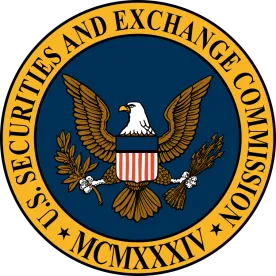The definition of an “accredited investor” is the cornerstone of Regulation D that provides a safe harbor exemption for private placements of securities by startups and more mature companies. Only in 2018, $1.7 trillion was invested into the startup sector by means of Regulation D offerings, out of which $228 billion was raised by companies rather than investment funds. Nearly all of the investors in such offerings were accredited. Now, the definition of an accredited investor may be changing to include new categories of people. This will open the extremely risky but yet extremely lucrative startup investment opportunities to more participants.
This blog focuses on certain proposed changes to the definition as it relates to natural persons.
The definition of “accredited investor” came about in 1982 together with the adoption of Regulation D (although the concept of an “accredited person” was first introduced by Rule 242 in 1980). The following categories of natural persons are deemed to be accredited:
-
Any natural person who had individual income in excess of $200,000 in each of the two most recent years or joint income with that person’s spouse in excess of $300,000 in each of those years and has a reasonable expectation of reaching the same income level in the current year;
-
Any natural person whose individual net worth, or joint net worth with that person’s spouse, exceeds $1 million (excluding the value of primary residence); and
-
Directors, executive officers, and general partners of the issuer or of the general partner of the issuer.
Other than expanding the income test to include a joint income component in 1988 and excluding the value of one’s primary residence from the net worth calculation as part of the Dodd-Frank Act in 2011, the SEC has not revised the definition since 1982.
On December 18, 2019, the SEC issued proposed rules to amend the accredited investor definition. The rules are currently in the 60-day comment process, so anyone who cares deeply about the outcome is encouraged to submit a comment to the SEC.
The main premise of the proposed rules is the fact that the SEC no longer believes wealth to be a proxy for financial sophistication, and I fully support this conclusion. There should be other criteria for establishing financial sophistication. Hence, the SEC is proposing to add the following new categories of natural persons to the category of accredited investors: (i) those who hold certain professional “certifications, designations or other credentials recognized by the Commission” and (ii) “knowledgeable employees” of a private fund who are investing in that fund. Since I fully agree with adding “knowledgeable employees” to the accredited investor definition list, I will focus my discussion on the persons with professional certifications.
With respect to the professional degrees, the SEC has proposed an initial list of accepted certifications, to be revised and amended from time to time. The initial list includes:
-
A Licensed General Securities Representative (Series 7);
-
A Licensed Investment Adviser Representative (Series 65); and
-
A Licensed Private Securities Offerings Representative (Series 82).
As currently proposed, the list of acceptable professional certifications is narrow and substantially limits eligible persons to those professionals working for broker-dealers (most of whom may already be accredited by other means). These individuals must be sponsored by a FINRA member firm to be allowed to take the Series 7 or 82 exam and first pass an introductory-level Securities Industry Essentials examination. There are no similar requirements for the Series 65 exam. As previously mentioned, taking a Series 7 or 82 exam assumes that such an individual is employed by a FINRA member firm. My view is that those individuals who are not working for a FINRA member firm should also be allowed to take the examinations, and if they pass, become “accredited investors.” In a sense, these exams, if stripped of the sponsorship requirement, should become tests for the minimum expertise necessary to be deemed to be an accredited investor. There should also be annual re-certification to ensure that these individuals keep abreast of all relevant developments in the financial and legal markets. Allowing everyone to take these exams, whether or not affiliated with a FINRA member firm, would render it unnecessary to consider other professional degrees such as a Ph.D. in finance or a Master’s degree in a similar field. All persons, regardless of the professional or educational background, should be able to take the tests and qualify to be an accredited investor. It could make sense, however, to impose investment limitations on those investors who qualify to be accredited solely based on the professional certification criteria.
Additionally, harmonization of the various definitions that are currently used in different securities laws would go a long way towards simplifying and streamlining the compliance process. Currently, in addition to the definition of an “accredited investor” found in Rule 501(a) of Regulation D under the Securities Act, we have the definition of a “qualified purchaser” under the Investment Company Act of 1940, a “qualified client” under the Investment Advisers Act of 1940, and a “qualified institutional buyer” in Rule 144A under the Securities Act. All of these definitions generally refer to wealthy entities and individuals but vary somewhat with respect to the thresholds and scope.
In conclusion, the proposed rules are a big step forward towards democratizing the definition of “accredited investor.” Having more accredited investors willing and interested to invest in startups will fuel the growth of the startup economy and should result in producing more jobs.



 />i
/>i


